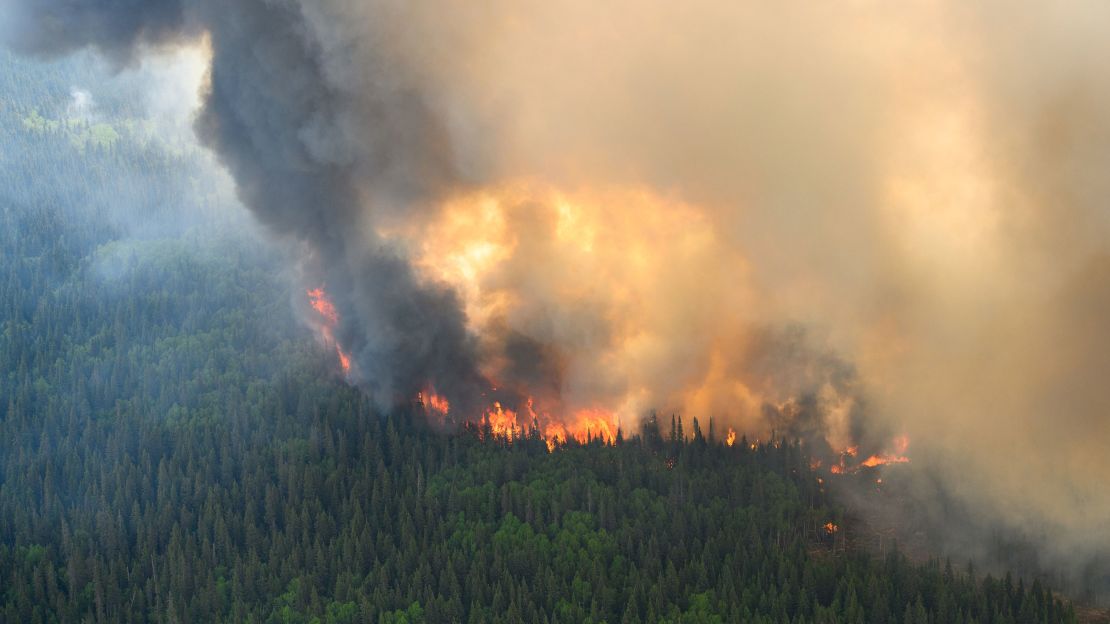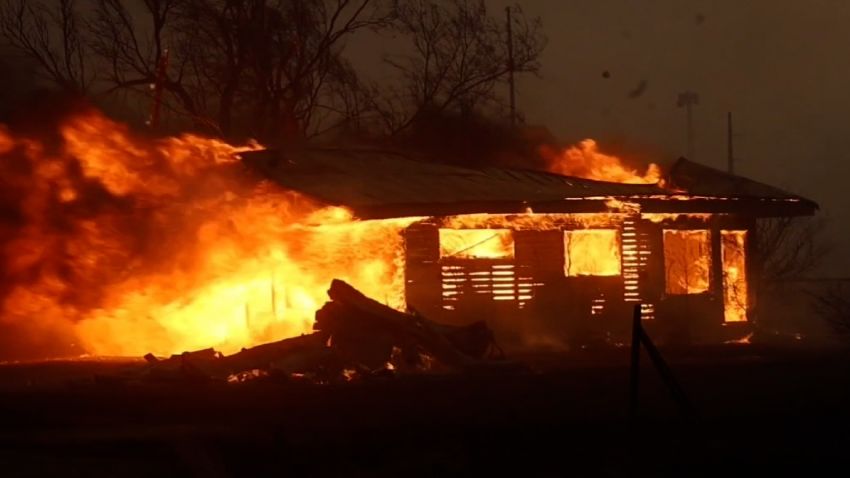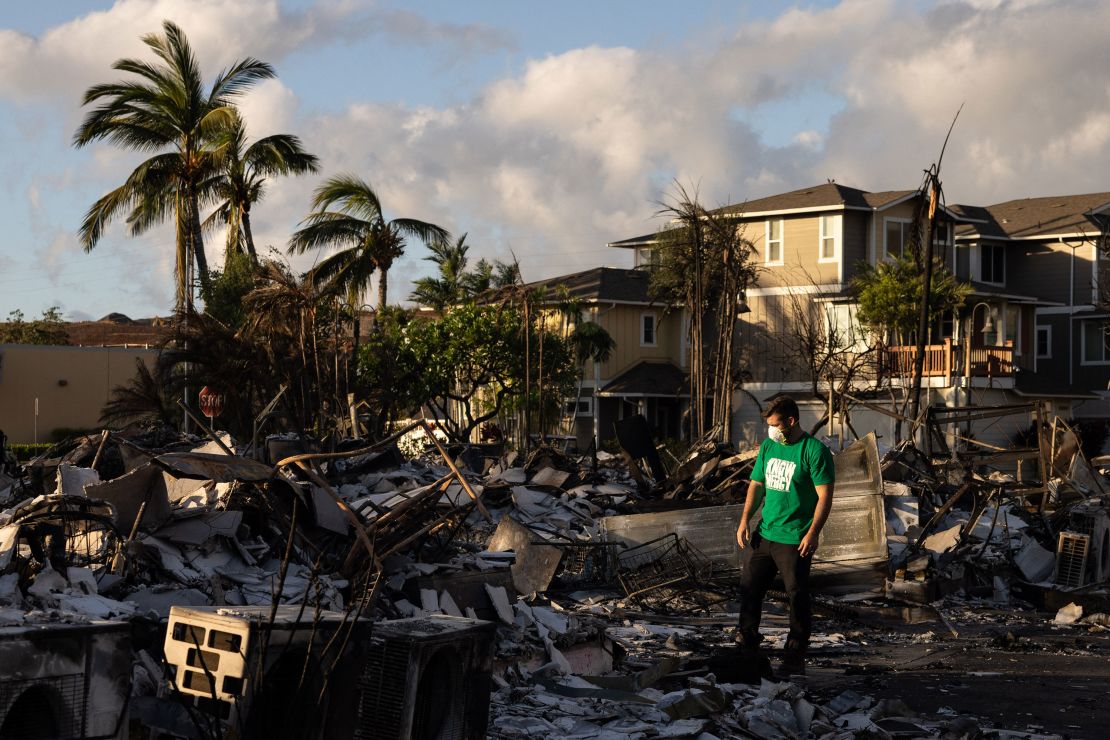Texas is no stranger to winter wildfires, but the ferocity of the Smokehouse Creek fire — the state’s largest on record after burning through more than 1 million acres — caught even the experts off guard.
Its severity was due to a perfect storm of environmental factors: highly flammable grasses and strong winds combined with record-high temperatures and dry conditions — the kind of extreme weather often exacerbated by climate change.
This fire adds to an ever-lengthening list of rapidly spreading, destructive wildfires in the US and elsewhere. As humans continue to heat up the world with fossil fuel pollution, scientists warn these kinds of fires will only become more common.
The past several years have brought some of the United States’ most devastating fires. The fire that ripped through Maui in August, whipped up by a combination of heat, drought and strong winds, killed at least 100 people and was the deadliest US wildfire in more than a century.
In California, 80% of the state’s largest wildfires have occurred in the last decade, including the 2018 Camp Fire, which killed 85 people and destroyed the town of Paradise.
But it’s not just the US grappling with alarming new fire behavior. Canada experienced its worst wildfire season on record in 2023, with flames scorching more than 18 million hectares (44.5 million acres) — more than double the previous record.
In Greece, winds and record temperatures led to deadly fires last summer, the largest ever recorded in the European Union. And in early February, wildfires tore through parts of Chile, killing more than 130 people.

“We have certainly seen plenty of extreme and catastrophic fires and fire seasons across the globe in the past decade,” said John Abatzoglou, a climate professor at the University of California, Merced.
What ties many of these fires together, he told CNN, is “rapid rates of fire spread and a sense of surprise on how quickly individual fires grew — or in the case of Canada, their entire fire season.”
In many cases, climate change is playing a role, he added, “enabling more active fire seasons and very large fire events.”
Why did the Texas fires grow so explosively?
To understand why the Texas fires have been so fierce you have to look to last spring, said Luke Kanclerz, a fire analyst at Texas A&M Forest Service. Parts of the Texas Panhandle were drenched with rain, around 300% to 400% above average levels, which allowed grasses to grow very fast, he told CNN.
Then, a hard freeze late in the fall meant all that grass went dormant. Sapped of moisture, they were highly flammable. It only took a short period of warm, dry weather for them to dry out further, providing a carpet for the fire to spread.
Temperatures were unseasonably hot the day the fires started, climbing to more than 85 degrees Fahrenheit in some parts of the panhandle, Kanclerz said.
Strong winds helped the fire pick up, and the passage of a windy cold front whipped it up further, causing the fire to shift direction and expand.
The region’s geography compounded the situation. The fire was able to rage across the open landscape with little to stop it, making firefighting efforts extremely challenging. The fire grew explosively, engulfing up to 150 football fields of land every minute in the first few days.
Kanclerz said it was clear before the fires broke out that wind, temperature and humidity indicators added up to critical fire conditions.
“But the magnitude of the fire exceeded our expectations,” he said.
It’s hard to witness, he added. Huge fires in these parts of Texas are “not unheard of,” he said, “but we hate to see the frequency of them.”
A shifting climate
Wildfires are fueled by a knot of factors, both natural and human-caused, but scientists say that global warming is loading the dice in favor of more intense and severe blazes.
Hotter temperatures are the clearest climate change-fueled contributor to wildfires. Heat sucks the moisture from vegetation making it much more combustible. “Drier fuels are a critical part of fire, the drier the fuel the easier it is to start a fire,” said Mike Flannigan, professor of wildland fire at the University of Alberta.

As well as drying out vegetation, heat could also change the vegetation. In Hawaii, hotter summers have made it easier for fast-growing and more combustible invasive species to take hold, displacing native vegetation such as shady forests.
Periods of drought, which are becoming longer and more intense as the world warms, also dry out vegetation and increase the likelihood of fires igniting and spreading rapidly. The Maui fires happened as a third of the island struggled with drought.
But drought isn’t always needed for fires to spread explosively, Abatzoglou said – something evidenced by the fact that as of earlier in the week, there was no drought where the Smokehouse Creek fire ignited and spread to.
In West Texas, shorter periods of dryness can be enough to fuel huge fires when there is a bumper crop of grasses as well as high winds, he said.
And these dry conditions are happening more often in the state, as elsewhere in the US. “There’s been a general decrease in relative humidity,” John Nielsen-Gammon, Texas state climatologist, told CNN.

Scientists are still working to understand what impact, if any, global warming is having on the winds that whip up wildfires.
Research has found climate change is fueling the rapid intensification of hurricanes, pushing storms to explode at a deadly pace. Hurricane Dora, a Category 4 storm which passed about 700 miles south of Hawaii’s Big Island, enhanced the strong winds that helped drive the Maui fires.
But it’s hard to attribute climate change to the winds that fueled the Texas fires, Abatzoglou said, “any link right now is most likely weak.”
Overall, however, climate projections “paint a future of more extreme fire weather conditions for the general region,” he added.
It’s a picture that extends across the US, according to a recent report from Climate Central, a nonprofit research group, which found wildfire seasons are lengthening and intensifying as climate change increases the likelihood of the kind of extreme weather that favors fires.
West Texas is one of the most affected states, said Kaitlyn Trudeau, a senior researcher at Climate Central. The Texas High Plains region, for example, experiences 32 additional days of warm, dry, windy conditions compared to the 1970s, she said.
Devastating wildfires are increasingly part of life in the US, and elsewhere, Trudeau told CNN.
“As long as the climate keeps warming and makes fire weather more common, the risks will only keep rising.”
CNN’s Rachel Ramirez contributed to this report.
How a warming climate is setting the stage for fast-spreading, destructive wildfires - CNN
Read More
No comments:
Post a Comment